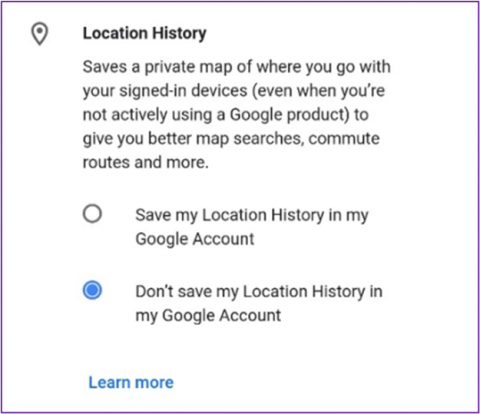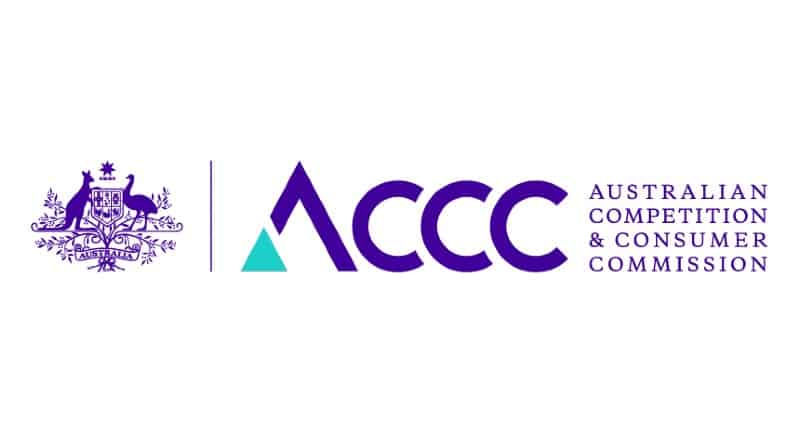In a modern digital era, the protection of personal data has become increasingly difficult to regulate. The reliance and surveillance of consumer data to create a ‘personalised’ online experience for media services, including Google, can be questioned on its pervasiveness and opportunity for misleading representations to be made. Misleading representations often impact consumer behaviours and evoke mistrust in corporations who deliver information likely to “lead to a wrong conclusion, create a false impression…leave out or hide important information”. Laws are in place to protect consumers from misleading representations that hinder consciousness and perception, possibly deceiving or coercing consumers into certain interactions with a corporation. The 2021 Australian federal court case between multinational tech company Google LLC and the Australian Competition and Consumer Commission (ACCC) explores the consequences of breaching consumer law through misleading representations regarding the collection of sensitive personal location data.
What happened in the Google LLC vs. ACCC case?
The Australian Competition and Consumer Commission (ACCC) vs. Google LLC case commenced in October 2019 when the ACCC instituted court proceedings, alleging that Google was in breach of Australian Consumer Laws through misleading representations.
The court determined that between January 2017 and December 2018, Google had been misleading Android users about the collection and function of their location information. Google insinuated that the ‘Location History’ setting was the only setting that affected whether users’ personal location data was collected, and those who turned this setting off were not being recorded on their identifiable location. This was misleading, as Google had an additional setting titled “Web & App Activity” authorising the recording and storage of personal location data when turned on, for ‘personalisation’ purposes amongst their services. The setting was turned on by default and didn’t clearly mention location tracking, meaning data was being collected without reasonable consent.


Google defences:
1) Reasonable consumers would expect ‘Web & App Activity’ to involve recording location data, as Google apps such as Maps or Calendar require it to function.
2) Users concerned about their data would have clicked ‘Learn More’ links and chosen to turn ‘Web & App Activity’ off to remain private with their location details.
While some of these defences were accepted, some were found to be unreasonable. In April 2021, the Federal Court concluded that Google LLC had breached several Australian Consumer Laws by misleading users in relation to their location data. Google was consequently ordered to pay a $60 million dollar penalty.
Who regulates Australian Consumer Laws and what do they protect?
The Australian Competition and Consumer Commission is the main statutory body within the public sphere that protects consumer rights and practices, through enforcing legislation. The ACCC administers the ‘Competiton and Consumer Act 2010’ (CCA) which is an important law in ensuring fair trade practices, avoiding consumer dissatisfaction and legal disputes in the media world. The CCA outlines Australian Consumer Law which provides justice and protection to individuals from unreasonable corporate behaviours including misleading claims and deceptive agreements/contracts.

What were the specific consumer laws breached by Google LLC in this case?
In the Google LLC vs. ACCC case, the Federal Court found that Google had breached several consumer laws. Google’s claims that the ‘Location History’ setting was the sole determinant of whether users’ location data is collected was determined by the ACCC as misleading or likely to mislead Android device users. Google’s actions breached Schedule 2 of the Competition and Consumer Act 2010, specifically, Section 18 (Australian Consumer Law) which outlines: “A person must not, in trade or commerce, engage in conduct that is misleading or deceptive or is likely to mislead or deceive.” The Federal Court further found that Google’s failure to provide transparency on the location aspect and characteristics of the ‘Web & App activity’ setting breached Section 34 of the Australian Consumer Law schedule, which concerns corporations engaging in conduct ‘liable to mislead the public as to the nature, the characteristics, the suitability for purpose…of services.’ The ACCC emphasised that Google’s description for ‘Web & App Activity’ did not explicitly mention location functions, and it was unreasonable that consumers had to visit ‘Learn More’ pages to discover that their data would be obtained for commercial purposes until the setting was manually turned off. ACCC chair Gina Cass-Gottlieb reinforced that:
“Personal location data is sensitive and important to some consumers… users who saw the representations may have made different choices about the collection… of their location data if the representations had not been made”
Judge Thomas Thawley was satisfied with the ACCC’s claim that Google’s representations and practices as a media structure were liable to mislead the public and impact decisions regarding data privacy.
What was the outcome of the case?
In April 2021, the Federal Court found Google LLC guilty of breaching Australian Consumer Law, and as a consequence they were ordered to:
- Pay $60 million dollars
- Ensure their policies include a commitment to compliance with Consumer Laws
- Ensure staff are trained in Australian Consumer Law to avoid misleading conduct in future practices.
As an internal outcome, Google observed that there was a 500% increase in the number of consumers who turned off their Location History and Web & App activity settings when the case became public.
What was the impact of the case?
The ACCC vs. Google case demonstrated how misleading representations and consumers’ rights to privacy have significant consequences and should be avoided by media professionals. ACCC Chair Rod Sims explained the impact of the decision:
“Today’s decision is an important step to make sure digital platforms are upfront with consumers about what is happening with their data and what they can do to protect it.”
The case overall shifted a strong focus on the power of the ACCC and Consumer Law in regulating the conduct of online media organisations to ensure that the right to data privacy is upheld for consumers.
What can media and communications professionals learn about misleading representations and consumer law?
Being regarded as a reliable and ethical information outlet, even on social media platforms, will contribute to valuable and profitable consumer interactions.
Modern consumers seek relationships with media organisations that are trustworthy and satisfy public interest and privacy laws. It is a breach of trust when the public is misled, especially regarding their sensitive individual data. Media and communication professionals should abide by consumer law to build an ethical and professional reputation and avoid the legal and financial implications of misleading representations.

